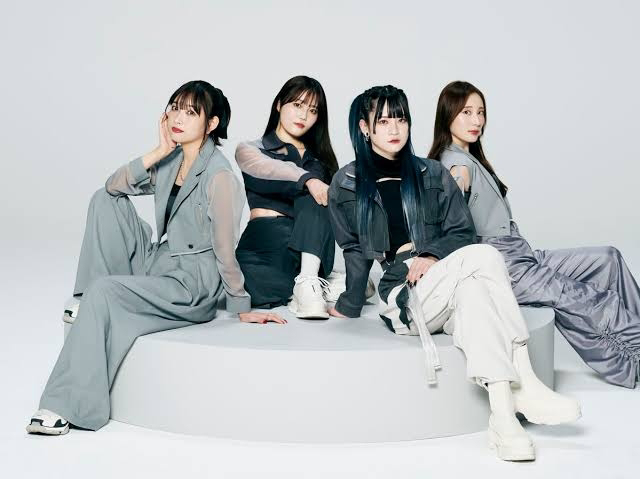**PassCode has released their first full album in four and a half years, "INSIGNIA." This work, their first since Emiri Arima joined, includes not only songs that have become indispensable to their live performances, such as the singles "Freely / FLAVOR OF BLUE" released in October 2021, and "WILLSHINE" and "SKILLAWAKE" released after their label transfer, but also six incredibly powerful new songs. Lead singles symbolizing this work, such as "INSIGNIA," "VIRIVIRI," "Echoes," and "One Time Only," are all featured. This is undoubtedly a representative work for PassCode, and it would not be surprising if many people hailed it as their masterpiece.** This interview, a long-awaited one for Rolling Stone Japan Web, features a somewhat unusual combination of Kaede Takashima and Hinako Ohgami. These two, who tend to be a bit reserved in interviews with all members present, revealed their current feelings.
**―"INSIGNIA" is your first full album in four and a half years. A lot has changed since the release of your previous work, "STRIVE." I imagine you've had many struggles, but it feels like everything has led to this moment.**
Ohgami: I really think so. It's always been like this, but I'm glad we worked so hard, and because we've been able to connect everything properly up to this point, we're still having fun now.
**―Regarding live performances, it's safe to say that now is the most enjoyable time.**
Ohgami: Oh, I'm happy to hear that.
**―The members are relaxed, and they blend well with the band's performance. That feeling is really good. Before, it felt like "a backing band" and "four members," but now it's not like that.**
Takashima: Three or four years ago, we often had big shows at places like Zepp, Budokan, and Yaon within a year, and the number of live performances itself was small, so rather than a sense of unity with the band, it was more about showing the performance of just the four members. However, last year, we did a tour that went around the country in detail, and as the number of shows increased and the venues became tighter live houses, the distance with the band became closer, and the interplay increased. Thanks to that, I feel like the whole thing blended together more.
Ohgami: I also feel like we've gotten closer to the band. For a long time after we started performing with a band set, the staff would often tell us things like, "You need more groove" or "The stage isn't gelling," but I was always wondering, "How do I create groove...?" So, I often talked with Yoichi-kun, who has been playing guitar for PassCode since the beginning, and I also thought that if we increased the overall rules, it might get better, but somehow... as we continued to work together, I feel like the groove naturally emerged.
**―I see.**
Ohgami: Also, I don't know if this is related to groove, but my live performances became even more enjoyable after the US tour the year before last, and when I came back from the tour, the domestic tour started around autumn, and that was also really fun. I just thought that maybe a sense of camaraderie was formed by going to the battlefield of America together.
**―That might be true. I also accompanied you on the US tour, but it wasn't just a tour; to exaggerate, it felt like a life-or-death situation.**
Ohgami: We didn't know how to live over there, and we didn't know what the atmosphere of the live performances would be like, or what kind of audience there would be. So, there might have been a feeling that we had to overcome those things together.
**―It felt like if someone who could move didn't move, regardless of who was in charge of what, the現場 (genba - scene/site) wouldn't function.**
Takashima: Certainly, I think the sense of groove and camaraderie that (Ohgami) Hinako mentioned increased not only with the band but also with the staff. Also, I wanted to study languages after the US tour, but I ended up not doing it (laughs). I always feel that way when I go overseas, and there are quite a few foreign people at our live performances in Japan, so I think they would be happy if I could speak to them even a little at that time...
**―Perhaps you'll only truly feel like studying when you genuinely feel that it would be better if you could say something here.**
Takashima: Exactly. Also, during the US tour, the members spoke English quite a bit, so I left it all to them. They were very reliable.
**―But conversely, during your Korean performance on the Asia tour last year, your Korean was in full swing, wasn't it, Takashima-san?**
Ohgami: You were incredibly reliable then! As an aside, when Kaede-chan (Takashima) and I went on a trip to Korea together, and I lost my train ticket and couldn't get out of the改札 (kaisatsu - ticket gate), Kaede-chan was able to communicate with the station attendant through the intercom, and I was able to get out. That was truly amazing.
**―It's amazing to have language skills that can avoid trouble.**
Ohgami: Moreover, it wasn't face-to-face, so that really means you're a fluent speaker, doesn't it?
**―Takashima-san, you learned Korean just because you "liked" it, right?**
Takashima: That's right. I didn't think about using it for PassCode at all (laughs). I just did it as a hobby. But, being able to interact with local fans for the first time like that gave me a sense of security that I could really communicate, but there were also times when I felt like I could have translated the members' words better, so I thought I should try harder.



Comments
Post a Comment